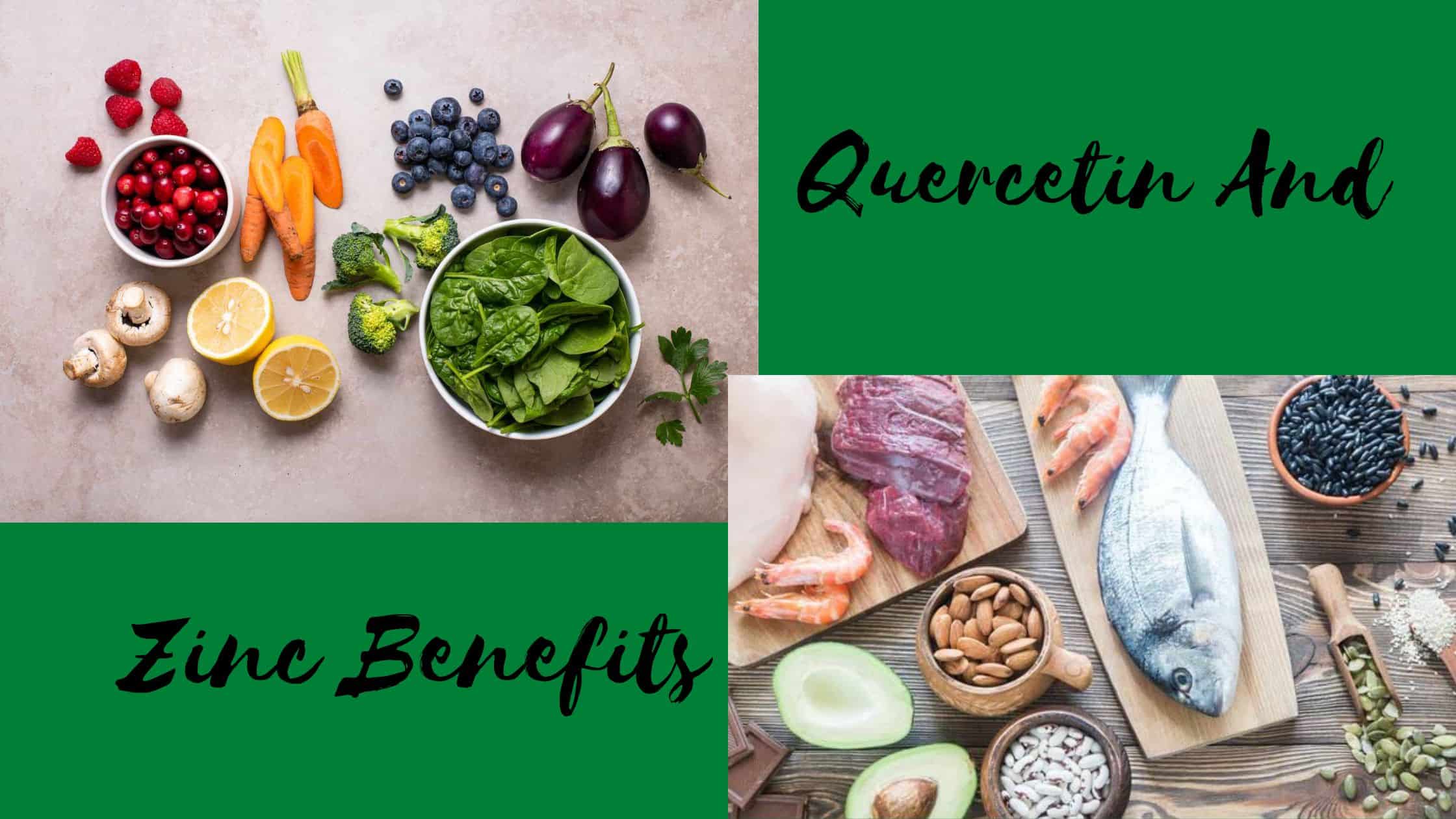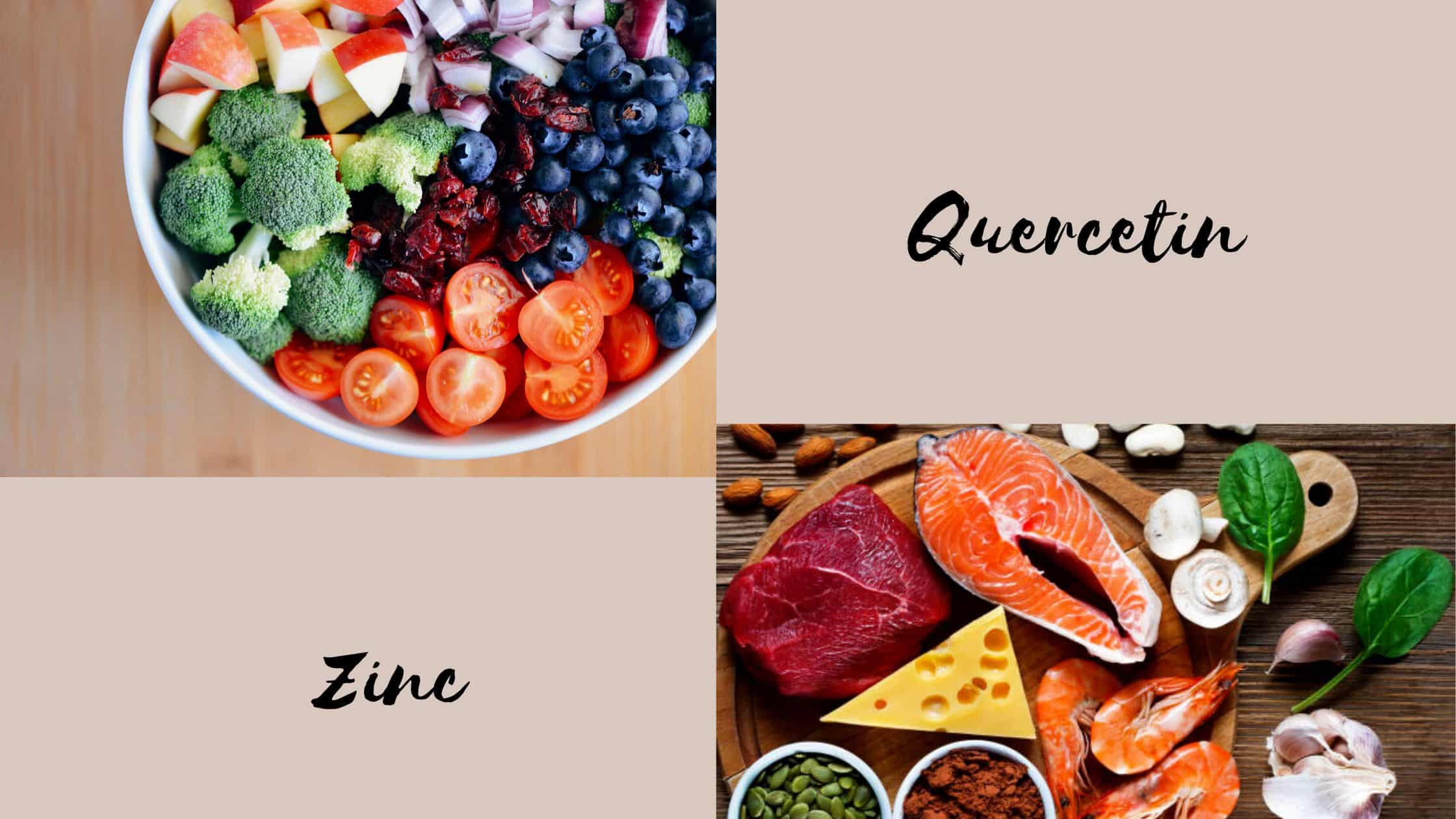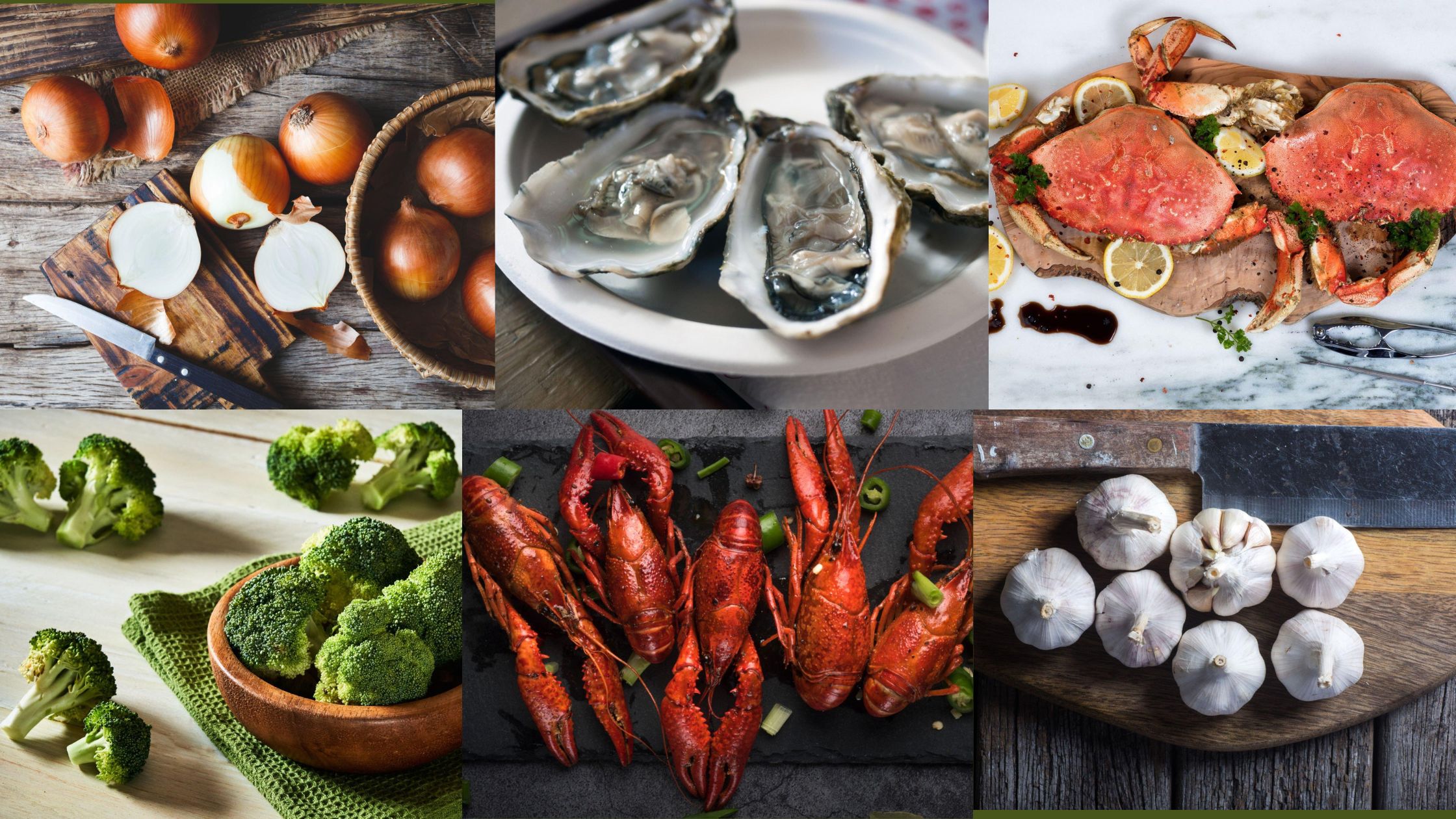Health
Quercetin And Zinc Benefits – Can I Take Quercetin & Zinc Together?

Quercetin and zinc have been found to have a synergistic effect on the prevention of cancer. This may be due to quercetin’s ability to inhibit the activity of enzymes that produce carcinogenic substances while simultaneously increasing the level of other antioxidants in the body.
Zinc has been shown to increase the effectiveness of quercetin by acting as an activator for enzymes that detoxify carcinogens.
Here we provide all the information you need to know about quercetin and zinc.
What Are Quercetin And Zinc? – Benefits Explained!
Quercetin and zinc are two vitamins that have been shown to promote healthy weight loss.
Quercetin is a flavonoid which means it’s a type of flavonoid.
Flavonoids are a group of compounds that occur naturally in plants, including apples and onions. Quercetin has been found to have antioxidant properties and may help protect against heart disease, cancer, and diabetes.
Zinc is an essential mineral that plays an important role in the growth and maintenance of bones, skin, hair, intestines, and prostate gland.
It’s also necessary for proper immune function and DNA synthesis (replication). Zinc deficiency can cause hair loss, poor wound healing, decreased fertility in men and women, and other health problems like muscle weakness and memory loss.

Benefits Of Quercetin And Zinc
Some benefits are:
- Quercetin helps reduce inflammation
The body typically responds to injury or irritation by undergoing inflammation. It’s an important part of healing but also causes pain, stiffness, swelling, and even organ failure if left unchecked.
Quercetin has been shown to inhibit several inflammatory enzymes, including COX-2 (cyclooxygenase-2), iNOS (inducible nitric oxide synthase), PGE2 (prostaglandin E2), and NAMPT (nucleoside diphosphate kinase), leading to lower levels of inflammation in the body without provoking any side effects.
- Heart Health
Quercetin may help prevent cardiovascular disease by lowering cholesterol levels in the blood. A study published in “Diabetes Care” showed that quercetin helped lower total cholesterol (a type of cholesterol) levels and LDL (“bad”) cholesterol levels more than other blood-thinning drugs such as simvastatin (Zocor).
- Immune System Support
Quercetin has been shown to help support the immune system by improving the health of white blood cells called neutrophils (a type of white blood cell). Neutrophils are important in fighting off infections and speeding up wound healing, which means they could be useful for treating autoimmune diseases such as multiple sclerosis (MS).
- Zinc helps maintain healthy skin
Zinnat may help prevent dry skin conditions such as eczema by maintaining the oil content in your skin. Zinc also helps to reduce irritation associated with dry skin such as itching and burning sensations. The ability to control itching may be one reason why people with eczema tend to have lower levels of zinc than those who don’t have this condition.
- Improves Mood
Zinc has been found to improve mood, especially in those with depression. It is one of the most common deficiencies in people with depression, and supplementation can help them feel better. Zinc also plays a role in brain development and function. In addition to improving mood and memory, zinc helps lower blood pressure, which can help reduce stress and anxiety.
- Zinc aids in iron absorption
Zinc plays a role in absorbing iron from foods, which is essential for blood production, red blood cells, and DNA synthesis. Iron deficiency can cause anemia and fatigue because it limits oxygen transportation throughout the body; therefore, consuming foods rich in iron can absorb more iron into your bloodstream.

Good Source Of Quercetin And Zinc
Quercetin rich foods:
- onions
Onions are a great source of quercetin, a powerful antioxidant that can help lower cholesterol and blood pressure. They also contain a compound called quercetin-3-galactoside. This is another powerful antioxidant that has been shown to help lower LDL cholesterol levels in the body and reduce inflammation and pain.
- Garlic
Garlic is another good source of quercetin, and it’s loaded with antioxidants, including sulforaphane, which has been shown to reduce inflammation in the body and has anti-cancer properties.
- Broccoli
Broccoli contains sulforaphane, which boosts your body’s ability to detoxify by increasing Phase II liver enzymes that remove harmful chemicals from your system.
Zinc-rich foods:
- Oysters
Oysters are a great source of zinc, which is an essential mineral that helps your body maintain healthy immune system function. They also contain high levels of vitamin B12, which plays a key role in producing red blood cells and energy metabolism. Plus, oysters are low in calories so they’re a great lean protein option if you’re trying to lose weight or get fit.
- Crab
Crabmeat is another great source of zinc, which helps with immune system function and boosts your energy levels. It’s also high in selenium and other nutrients that support heart health, brain function, and cell growth. The best part? Crab meat is already cooked so it’s easy to eat on the go!
- Lobster
Lobster is high in zinc, iron, and other vitamins and minerals essential for healthy body function like immunity and energy production. It’s also low in calories, making it a great light meal option if you’re looking to lose or maintain your current weight.

How Much Should We Consume Daily?
The recommended daily intake of quercetin is 300 mg per day. This amount can be taken in the form of capsules, tablets, or as tea.
Zinc is an essential mineral we need to consume regularly to maintain good health. Our recommended daily zinc intake is 10 mg for men and 8 mg for women. Zinc supplements are available in tablets and capsules that can be taken orally or by mouth.
The recommended dose of quercetin and zinc depends on whether or not you have an illness that requires additional nutrients to fight off infection, such as colds, flu, and sinus infections; if you take medications; your age; your weight; how much dairy you eat; how much alcohol you drink; how active you are and more.
Expert Advice
You may have heard of quercetin and zinc when it comes to boosting your immune system. But what do these two supplements do? Here’s what experts have to say about quercetin and zinc and how they can help keep your immune system strong.
One kind of phytonutrient is a flavonoid, which includes quercetin. Flavonoids are found in various fruits and vegetables, but quercetin is also found in supplements. Quercetin has a variety of health benefits, including boosting the immune system.
One way quercetin boosts the immune system is by helping to increase the production of white blood cells. The body uses white blood cells to fight off disease. Quercetin also helps to reduce inflammation.
Zinc is another nutrient that is important for the immune system. Zinc helps the body to produce more white blood cells and also helps to reduce inflammation. Zinc can be found in various foods but is also available in supplement form.
So, what do experts recommend when taking quercetin and zinc? Well, the recommended daily dose of quercetin is 300 mg. As for zinc, the recommended daily dose is 10 mg.
It’s important to note that you should always speak with your doctor before taking any supplements, including quercetin and zinc. This is especially crucial if you take any medications or have any medical conditions.
FAQS
- What are the health benefits of quercetin?
Quercetin has been studied extensively for its potential benefits to cardiovascular disease and cancer prevention. However, it’s not known whether quercetin helps prevent these diseases. In addition, research on quercetin as a treatment for these conditions has produced mixed results.
- Can quercetin and zinc be taken together?
Most people can take quercetin and zinc together with no problems, but it is possible that you may experience side effects if you take too much of either vitamin. Some people have reported stomach upset, diarrhea, or headaches after taking too much zinc or quercetin.
- Is there any evidence to support this claim?
Yes! A recent study published in the journal Neurobiology of Aging showed that daily supplementation with quercetin improved memory function in older adults experiencing cognitive decline.
- What type of food is best?
Quercetin is a plant pigment that has powerful antioxidant and anti-inflammatory effects. It is found in various fruits and vegetables, such as onions, apples, and green tea. Zinc is essential in many vital body processes, such as immune function, cell growth, and wound healing.
- Can I take quercetin with other supplements?
Yes! Many people take quercetin and other supplements daily, such as vitamin C or E, magnesium, and selenium, because they want them all to work synergistically toward their desired goal.
